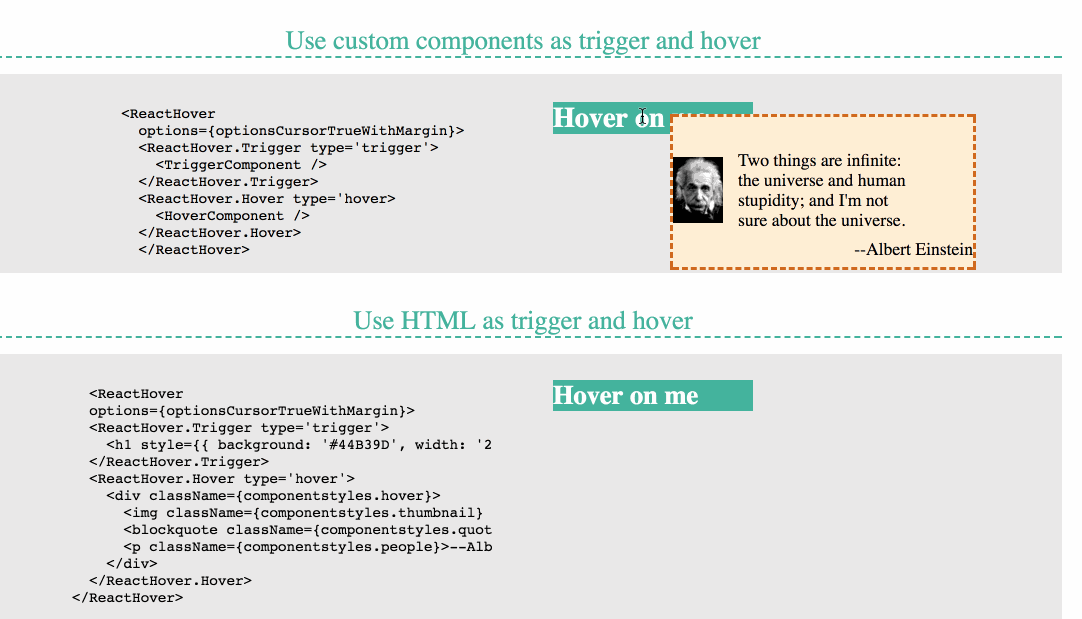$ npm install --save react-hover
You can turn plain HTML or your custom trigger/hover components in React-hover.
Below is the example of custom components:
<ReactHover
options={optionsCursorTrueWithMargin}>
<ReactHover.Trigger type='trigger'>
<TriggerComponent />
</ReactHover.Trigger>
<ReactHover.Hover type='hover'>
<HoverComponent />
</ReactHover.Hover>
</ReactHover>Or plain HTML element:
<ReactHover
options={optionsCursorTrueWithMargin}>
<ReactHover.Trigger type='trigger'>
<h1 style={{background: '#abbcf1', width: '200px'}}> Hover on me </h1>
</ReactHover.Trigger>
<ReactHover.Hover type='hover'>
<h1> I am hover HTML </h1>
</ReactHover.Hover>
</ReactHover>Set the options.
const options = {
followCursor:true,
shiftX: 20,
shiftY: 0
}followCursor: define if hover object follow mouse cursor
shiftX: left-right shift the hover object to the mouse cursor
shiftY: up-down shift the hover object to the mouse cursor
Set the type.
<ReactHover.Trigger type='trigger'>
<ReactHover.Hover type='hover'>This prop defines the type name. It must be declared as above if you minify your code in production.
$ git clone [email protected]:cht8687/react-hover.git
$ cd react-hover
$ npm install
$ npm run dev
Then
open http://localhost:8080/webpack-dev-server/
MIT





